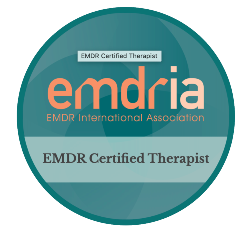Learning to Forgive Yourself
Ruminating and worrying about mistakes you have made can be very frustrating, anxiety provoking and shame inducing. Making mistakes is an inherent part of life, but knowing how to acknowledge them, learn from them, let go of them and move on can be challenging at best. Here are some tips to help in the process of learning to forgive yourself:
- Remember that you are human and humans make mistake. We all are perfectly designed for imperfection. This doesn’t mean that you should be indifferent to your choices or be reckless with other people’s feelings. But, it does mean that even when you try, or have good intentions, you stand to fall short sometimes. Acknowledging your mistakes is the first step to being able to forgive yourself.
- In spite of regret about mistakes, they teach you, shape you and help you to grow.Reflecting on your choices and recognizing the error of your ways, teaches you about yourself, others and about perspective. Making an effort to change things in the future, helps you to become kinder and wiser.
- Feeling some guilt is not a bad thing. Guilt provides us with a moral compass. It keeps us moving in the right direction and without it, our society would be laden with problems. But, there is an important difference between guilt and shame. Guilt says “what you did was wrong.” Shame says “You are a bad person for being wrong.” Shame takes on a quality of self-disgust. Self-disgust often leads to further poor choices. Guilt supports love for yourself, but acts as a gauge to encourage good choices.
- Once you have acknowledged a wrong doing, make amends. Apologizing for a mistake, or for hurting someone’s feelings, is freeing if it is heartfelt. It is an act of kindness to others and to yourself. Decide how to best repair the damage done so that you can clear your conscience and move forward with the ability to forgive yourself.
- If you are ruminating about your mistake, consider if you have unrealistic expectations for yourself. Are you a perfectionist or are you setting your standards too high? If that is the case, you may find that no matter what you do, you feel you fall short. This could be due to experiences of not feeling good enough as a child or for some other earlier unresolved issues. Accepting yourself right where you are on the learning curve of life is an important step in growth.
- Make a personal decision to live your life more thoughtfully. Patience is not only a virtue when it comes to waiting for good things, but it is an important step in taking the time to think things through and proceed carefully with other people’s feelings. Life is busy and often many of us find ourselves rushing through each day. But, slowing down, delaying gratification, and giving thoughtful consideration to the impact of our behavior and decisions can make a world of difference in the way we feel.
Carrying the weight of remorse to the point of rumination is not productive for anyone. If you need help sorting though your feelings, or for more information on learning to forgive yourself, there are a number of books and resources available. It may also be valuable to talk with a therapist to help you sort through why you are stuck in feelings of guilt or shame.
Books and articles on this topic:
Forgiveness: How to Make Peace With Your Past and Get on With Your Life.(2009). Simon, S.
Tamra Hughes, MA, LPC EMDRIA Approved EMDR Trainer and Consultant, www.greenwoodcounselingcenter.com www.emdrcenteroftherockies.com





